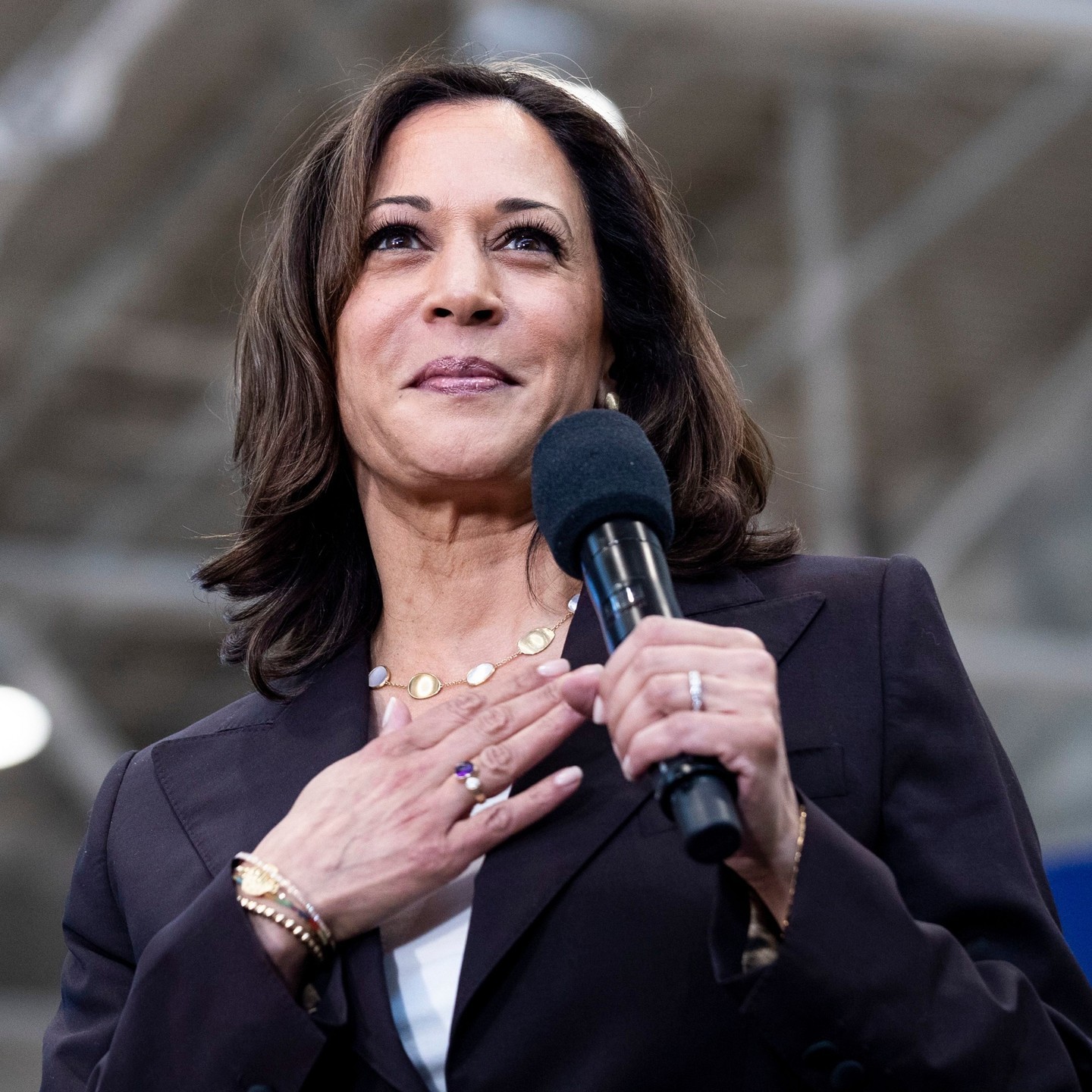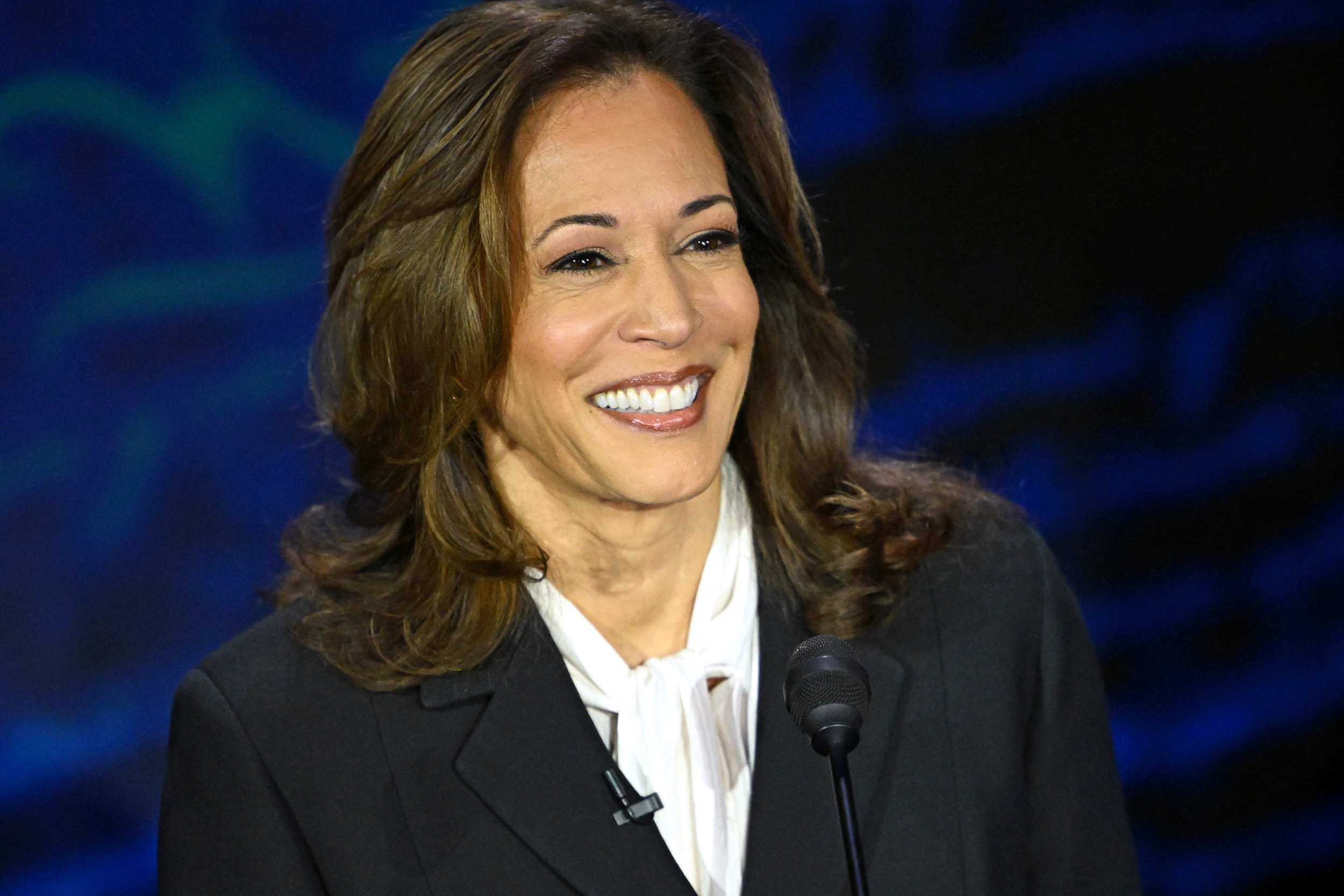Kamala Harris 10-Hour School Day - What It Means
There's been quite a bit of talk, actually, about a suggestion from Kamala Harris concerning how long kids spend at school each day. The basic idea behind it, you know, is to make school hours more like typical work hours for grown-ups. This thought, so it seems, comes from a desire to give a helping hand to parents who are out working, trying to make ends meet and manage their family life all at the same time. It's a way, perhaps, to ease some of the daily scramble many households experience.
This conversation really started getting some attention when a report came out discussing the plan to stretch out the school day to ten hours, usually from eight in the morning until six in the evening. It was a proposal, apparently, that aimed to better match up the time children are at school with the hours most adults spend at their jobs. The goal, in a way, was to lessen the weight of finding someone to look after the kids after school gets out but before parents get home from their own work.
The proposal, often called the "Family Friendly Schools Act," suggested setting up a kind of trial run. This would involve a group of elementary schools, a few hundred of them, getting some extra support to keep their doors open longer. The hope, it seems, was to offer more activities for students that go beyond the usual school schedule, all with the bigger picture of assisting those busy working families. It’s a point of discussion that has many people thinking about the daily routines of families and children.
- Storage For Pool Toys
- Frankie Muniz Movies And Tv Shows
- Whos The Boss Episode Guide
- Olympic Mens Gymnastics Team Usa
- Killer Preacher
Table of Contents
- Who is Kamala Harris?
- Personal Details and Bio Data
- What's the thought behind the Kamala Harris 10-hour school day idea?
- What does the Family Friendly Schools Act propose for the Kamala Harris 10-hour school day?
- How do students feel about the Kamala Harris 10-hour school day?
- What are some worries about the Kamala Harris 10-hour school day?
- The push to align schedules: a key part of the Kamala Harris 10-hour school day.
- Looking at the wider impact of the Kamala Harris 10-hour school day on home life.
Who is Kamala Harris?
Kamala Harris, as many know, has been a significant figure in American politics for some time now. She was a presidential hopeful in 2020, and then, very recently, she stepped into the role of Vice President. Her path in public service has included time as a US Senator for California, and before that, she held positions like Attorney General for California and District Attorney of San Francisco. Her work, you know, has often centered on legal matters and public policy, shaping many discussions in the country.
Even though she herself doesn't have children, she has put forward ideas that would make a big difference for many families with kids. This particular proposal about school hours, for instance, shows her interest in the daily challenges faced by working parents. She seems to be thinking about how public services, like schools, can better fit into the lives of busy households. It's a perspective, too, that tries to address practical problems many people deal with every single day.
Personal Details and Bio Data
| Detail | Information |
|---|---|
| Name | Kamala Devi Harris |
| Birth Date | October 20, 1964 |
| Birth Place | Oakland, California |
| Current Role | Vice President of the United States |
| Previous Roles | US Senator for California, Attorney General of California, District Attorney of San Francisco |
| Spouse | Douglas Emhoff |
| Children | None (Stepmother to two children from spouse's previous marriage) |
What's the thought behind the Kamala Harris 10-hour school day idea?
The main drive behind the idea for a longer school day, you see, comes from a very real issue that many working parents face. Typically, school lets out in the mid-afternoon, often around three o'clock, but most jobs for grown-ups don't finish until much later, maybe five or six in the evening, or even later than that. This creates a rather significant gap in time where children need supervision, and parents are still at their places of work. It’s a daily puzzle, in some respects, that families have to figure out.
- Plus Size Travel Outfits
- Elf Blush
- Charles Michael Davis Children
- Who Is Running For Florida Governor 2026
- Why Did Shia Labeouf Get Arrested
For parents who are trying to manage a job and a family, this time difference can be a source of real stress. They might need to find after-school care, which can be quite costly, or rely on family members or neighbors. Sometimes, too, parents have to adjust their work hours, which might mean less pay or fewer opportunities for their own careers. The proposal, then, is basically an attempt to lessen this everyday difficulty, making it a bit easier for families to balance their responsibilities. It’s about trying to make the school system fit more neatly into the daily lives of adults who are working.
The thinking is that if schools stayed open until six in the evening, it would match up with when most parents finish their work. This alignment, so the argument goes, would take away a big piece of the childcare worry for families. It's an effort, too, to acknowledge that the way schools have traditionally operated doesn't always fit with the demands of modern working life. The goal, very simply, is to provide a practical solution to a common family challenge, offering a sense of relief for those who are constantly juggling their schedules.
What does the Family Friendly Schools Act propose for the Kamala Harris 10-hour school day?
The "Family Friendly Schools Act," which Kamala Harris put forward, suggests creating a special trial program. This program, in a way, would offer money to a select group of elementary schools, about five hundred of them, over a period of five years. The purpose of this funding, you know, would be to help these schools stay open for a longer stretch of time each day, providing activities for students that go beyond the usual lessons. It’s a pretty specific approach to trying out a new way of doing things.
The bill talks about giving out up to five million dollars to these schools. This money, essentially, would be used to put on various engaging activities for the children during those extended hours. These aren't meant to be just more classroom lessons, but rather things that enrich their day, perhaps through clubs, sports, or creative pursuits. The idea, apparently, is to make the extra time at school a positive and helpful experience for the kids, not just an extension of the regular academic day.
A key part of this proposal, so it seems, is that it would give preference to schools that have the greatest need. This means places where a lot of the students come from homes with single parents who work, or where both parents in the household are working. The focus, then, is really on helping those families who face the biggest challenges in finding care for their children during those after-school hours. It's a way, perhaps, to direct resources to where they might make the most immediate and significant difference for families struggling with daily schedules.
How do students feel about the Kamala Harris 10-hour school day?
When you ask students about the idea of spending ten hours at school, their feelings are, interestingly enough, quite mixed. Some children, you know, seem to grasp both sides of the argument, understanding why such a plan might be put forward. They can see the reasons behind wanting to help parents, which is a rather mature outlook for young people. It shows that they can consider the bigger picture, even if it affects their own daily routine.
However, many students also express some real concerns about having their school day stretched out. They often say things like, "I have a lot of stuff to do as it is," or "I'm busy with life." This suggests that kids, too, have their own schedules and interests outside of school, whether it's playing, doing hobbies, or just having some quiet time at home. For them, adding more hours to the school day could feel like taking away valuable personal time, which is a pretty big deal for a child's development and well-being.
Some students even put it in very strong terms, saying things like, "just leave them in jail, I mean, school for 10 hours!!!" This kind of reaction, basically, highlights a fear of feeling trapped or having too little freedom. They question whether it would be healthy for a child to spend so much time inside a school building, wondering about the loss of free time for being a kid, for family activities, or even just for the chance to be bored at home. It brings up a very real point about the balance between structured learning and unstructured play in a child's life, which is a rather important consideration.
What are some worries about the Kamala Harris 10-hour school day?
Beyond the student perspective, there have been other voices expressing some worries about the idea of a ten-hour school day. People from different viewpoints, for instance, have quickly shared their criticisms of the proposal. Some have called the idea of keeping schools open until six in the evening "disturbing and revealing," suggesting deeper concerns about the nature of childhood and family life. It’s a point of view, too, that questions the fundamental purpose of school and its role in a child's overall upbringing.
One of the main questions that comes up is whether it's truly good for a child to spend such a long stretch of time in a school setting. People ask, "Who needs free time to be kids, to participate in family activities, to just be bored at home!?" This highlights a concern that a longer school day might take away precious moments for children to simply be children, to play freely, to engage with their families, or to develop their own interests outside of an organized environment. It’s a rather important aspect of growing up that many feel should not be overlooked.
There's also a discussion about the physical and mental well-being of children if they are to be in a school building for ten hours. Some argue that this could lead to tiredness, stress, or a lack of opportunity for physical activity and relaxation. The thought is that while the intention might be to help parents, the actual effect on the children could be less than ideal. It's a very real concern about the long-term impact on a child's health and happiness, which is a pretty central part of any decision about their daily lives.
The push to align schedules: a key part of the Kamala Harris 10-hour school day.
A central part of the whole idea, you know, is to make the school day match up with the typical workday for adults. The argument is that the current school schedule, which often ends early in the afternoon, just doesn't take into account the fact that most parents are still at their jobs for several more hours. This misalignment, basically, creates a daily challenge for families, leaving them to figure out what to do with their children during that gap. It’s a very practical problem that the proposal tries to address.
Kamala Harris has pointed out that school days often finish hours before seventy percent of parents end their work day. This significant difference means that a huge number of families are constantly looking for solutions for after-school care. The proposal, then, is a direct response to this widespread issue, aiming to offer a more practical approach to fixing it. It's about trying to bring the two schedules, school and work, into better harmony, which is a rather straightforward goal.
By extending the school day until six in the evening, the "Family Friendly Schools Act" seeks to close this time gap. The idea is that if schools are open for roughly the same hours as a typical job, it would greatly reduce the burden of finding and paying for extra childcare. It’s a way, perhaps, to provide a consistent and reliable option for families, making their daily routines a little less complicated. This alignment of hours, you see, is at the very heart of what the proposal hopes to achieve for working families.
Looking at the wider impact of the Kamala Harris 10-hour school day on home life.
The proposal to extend the school day to ten hours, from eight in the morning to six in the evening, has a bigger aim than just keeping kids busy. It’s really about lessening the overall pressure on families, especially when it comes to childcare. For many parents, the cost and availability of after-school programs are a constant worry, a bit of a heavy load. This plan, in a way, tries to take some of that weight off their shoulders, which is a pretty significant benefit for household budgets and peace of mind.
Think about it: right now, a lot of kids already have a long day, even before this proposal. They might get to school as early as seven in the morning for breakfast, and then, after a full school day, they often have bussing time. This means that for many children, their time away from home and in a structured environment is already quite lengthy. The discussion around the ten-hour school day, then, raises questions about how much time children truly spend in organized settings versus time at home with their families or simply relaxing. It's a rather important balance to consider for a child's development.
The goal, ultimately, is to reduce the stress that childcare puts on working families. If schools can provide a safe and enriching environment for children for longer hours, it means parents might not have to rush from work, pay for expensive after-school care, or worry about who is watching their kids. It’s an attempt, too, to make daily life a bit smoother for those who are trying to manage both a job and a family. This focus on easing the burden, you know, is a key part of the entire discussion surrounding the "Kamala Harris 10-hour school day" idea.

Kamala Harris Biography: Husband, Children, Age, Nationality, Net Worth

Kamala Harris Surging With Three Key Groups, Polls Show - Newsweek

Kamala Harris was a replacement-level candidate